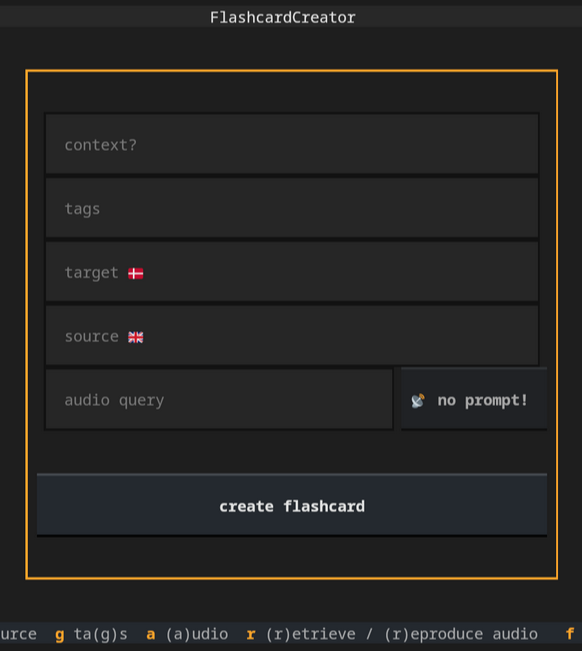
motivation
I have been using Anki for well over a year now. Although its interface includes useful keybindings and shortcuts tailored to power users, I felt the need for better automation of the whole process on which my language learning heavily relies. Essentially, I want to reduce friction during my studies, and (almost) automatically generate quality flashcards directly into Anki.
Projects like Yomichan and subs2srs — and many others! vocabsieve, for example! — did a great job at closing gaps between student and learning content, and are both a source of inspiration and a sign of having found a vibrant community of like-minded people targeting similar objectives.
goals
It should improve my usual workflow — to translate vocabulary/sentences between two languages —, reducing manual intervention among the various steps needed for a full flashcard (more information on my usual procedure here).
Plus, I would like to handle input from other sources: an example is Lute, a great tool for immersive reading, or my kobo.
Ideally, the application would be available through HTTP — or better put, a web-app I could use anywhere from my phone or computer.
chosen tech
For the MVP, I settled for (the very comfortable) Python, which handles some API calls for online translation and text-to-speech services. Textual renders a terminal-based front-end. Anki, of course, receives the newly generated flashcards.
I want the code to be public, hopefully useful for other people, and open to collaborations if it so happens. Since it has been a while since I did any project (most of the Summer I was...err...doing some other things), it felt like a good opportunity to assess my current standing in the field.
Throughout the process, I tried sticking to test-driven development and it went mostly well.